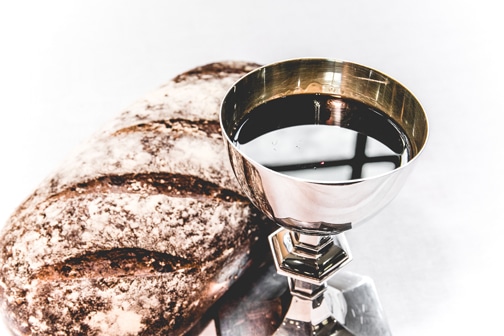 The Lord Supper is a
The Lord Supper is a
1. Celebration with thanksgiving: “and when he had given thanks” (1 Cor. 11:24a). If Jesus celebrated the Last Supper with gratitude to His Father, should we not also celebrate the Lord’s Supper with gratitude to Jesus for what He has done for us? Through the finished work of Christ we have received eternal life.
2. Commemoration of Christ’s death: “Do this in remembrance of me” (1 Cor. 11:24b, 25b). In the Lord’s Supper we remember Christ, specifically His atoning death. Christ died that we might live forever.
3. Command: “Do this” (1 Cor 11:25–26). It is an ordinance; thus, believers in Christ must participate in this sacrament. A person who claims to be a Christian and constantly refuses to partake of the Lord’s Supper is living in disobedience to God.
4. Consecration: “Let a person examine himself” (1 Cor. 11:27–30). The Lord’s Supper is sacred. Hence we also call it the Holy Sacrament or Holy Communion. For this reason God asks us to examine ourselves to make sure that we come to the Lord’s Table with a clean heart—a heart cleansed by the blood of Christ.
5. Communion: “When you come together” (1 Cor. 11:17–22). In Holy Communion we are given a special opportunity to fellowship with our triune God and with our fellow believers.
6. Covenant: “This cup is the new covenant in my blood” (1 Cor. 11:23–25). It is new in contrast to the old covenant. In the old covenant we had only the blood of an animal; in the new covenant we have the blood of Jesus Christ—the blood that has the power to cleanse us from our sins.
7. Communication of the gospel: “you proclaim the Lord’s death” (1 Cor. 11:26). It is an acted proclamation of the gospel. Here the gospel is proclaimed not through the written word but through the sacrament. In the celebration of the Lord’s Supper, the gospel of Christ is communicated to us.
8. Contemplation of the coming of Christ: “until he comes” (1 Cor. 11:26b). While in the Lord’s Supper we specifically contemplate Christ’s death, we also meditate upon His second coming. Therefore, as we come to the Lord’s Table, let us not stop at Calvary. Let us also look forward to Christ’s glorious return. The Lord’s Supper is a foretaste of our heavenly banquet with Christ.
